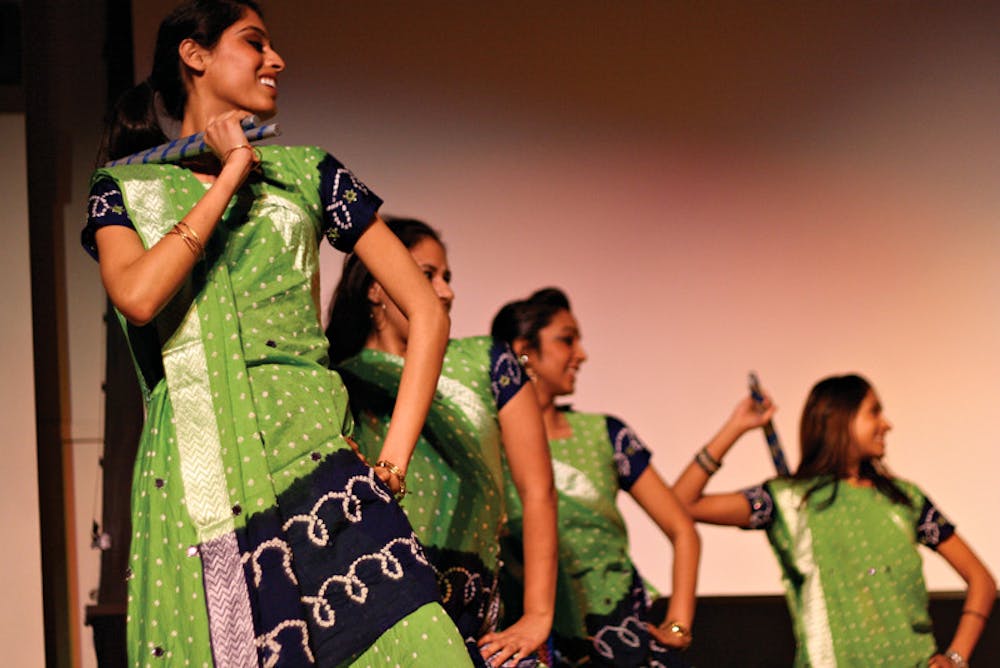Several cultural groups — that in recent years have felt underfunded by the Undergraduate Finance Board — are supplementing their official UFB funding with unreported cash to afford putting on festivals and events, The Herald learned from interviews with cultural group leaders.
Though the board is supposed to serve as student groups’ main source of funding, it has historically struggled with a small student activities endowment and failed to meet some groups’ financial needs. UFB leaders said they were unaware of the illegal cash until their conversations with The Herald.
The vice president of a prominent cultural group on campus, who asked to remain anonymous to avoid punishment from the UFB, told The Herald his group keeps “shoe box money” to “act as a buffer in case the funds we receive from UFB run out.” The group secretly holds around $200 of the proceeds from its fundraising events in a private bank account, instead of an account with the Student Activities Office.
He added that the UFB has decreased the group’s funding for the spring semester over the years, though the group’s most costly event occurs in the spring.
“We have had to resort to using our hidden money a lot more frequently than in the past,” he said.
Another leader of a cultural group, who also wished to remain anonymous, told The Herald her group keeps unreported cash to spend on alcohol for its events. She said her group started this practice because UFB does not fund alcohol, since it serves an undergraduate population that mostly has not reached the legal drinking age. Many of the leader’s group members are graduate students and faculty members, she said.
“Groups aren’t supposed to keep outside accounts, but occasionally we learn about one,” said Timothy Shiner, director of Student Activities and the Stephen Robert ’62 Campus Center.
When representatives from the SAO learn of groups keeping outside accounts, they meet with the group leaders to determine their reasons for keeping the accounts and ask them to stop, Shiner added.
But this practice has not caught the attention of UFB leadership.
Leila Veerasamy ’15, chair of the UFB, said she had not heard of cultural groups keeping outside funds.
Fredrick Rhine ’15, who served as a UFB representative for 13 cultural groups last semester, said he also did not know of any unreported funds in existence.
“I think it’s problematic for groups to do that and not tell UFB, and then come in and ask UFB for money,” Rhine said. “It’s not fair to other groups.”
Veerasamy said the practice put groups that did not keep unreported funds at an unfair disadvantage, since UFB would view them comparably to groups that may have more money.
But student cultural group leaders told The Herald they thought other cultural groups may keep unreported cash because they feel underfunded by UFB.
“It makes sense why groups would be forced into having to do that if they felt underfunded,” said Meghal Shah ’14, vice president of the South Asian Students Association, the largest cultural group on campus.
Shah said SASA often suffers from a lack of funding from UFB, such as when the group cancelled plans to host filmmaker Sarovar Banka ’02 two years in a row because it could not afford to pay for his travel.
But Veerasamy said she does not think cultural groups are underfunded.
“If some cultural groups are feeling underfunded, it’s because there’s been miscommunication and they don’t understand that they can come in for appeals,” she said, adding that she would work to address the issue of miscommunication this year.
The board’s new policy on food may curb the use of outside accounts. UFB has not funded food in the past, but starting this semester, it will cover the cost of 50 percent of the food for an event.
“A lot of cultural events are often centered around food,” said SASA President Gayatri Mehra ’14, citing SASA’s Dinner Dance and Senior Celebration as examples. “So funding for food will definitely affect what cultural groups can do.”

ADVERTISEMENT




